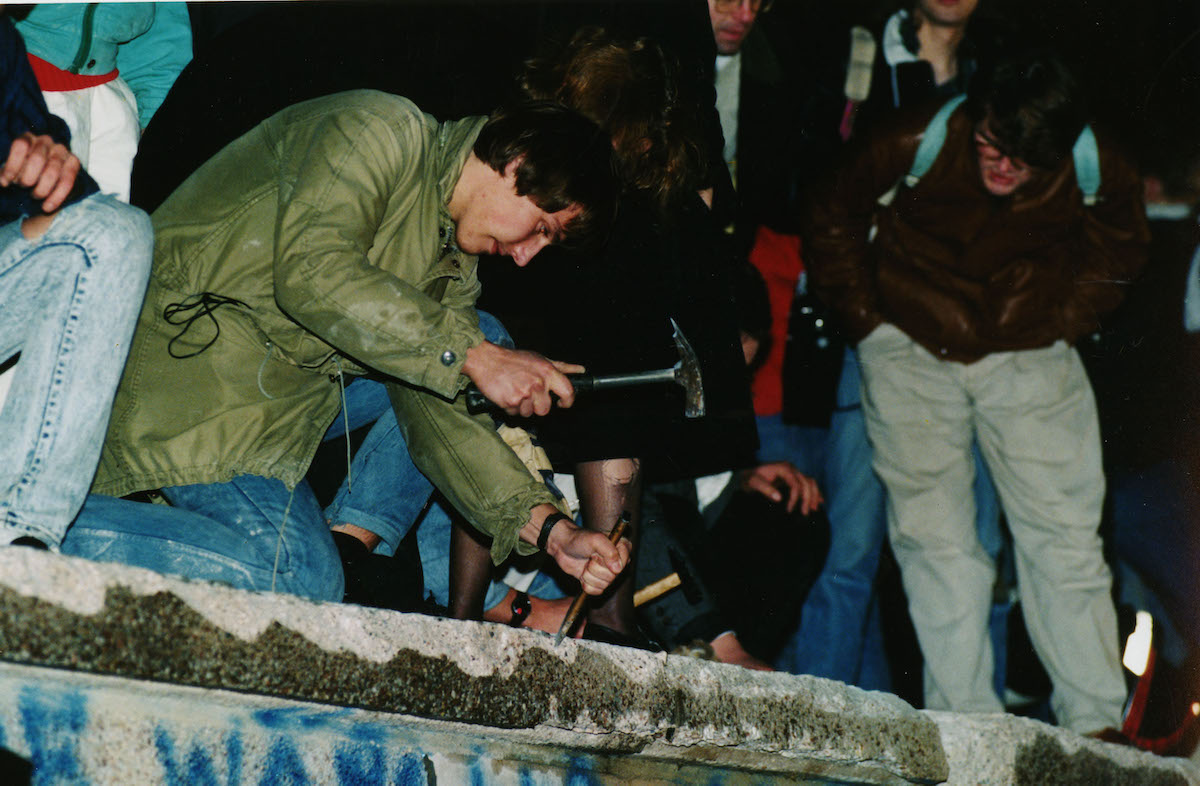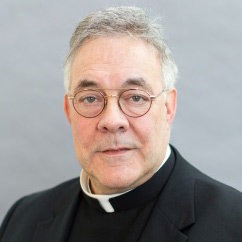Excerpts from remarks delivered at the Acton Institute annual dinner in Grand Rapids, Mich., on Oct. 29, 2009:
Twenty years ago today, a growing tide of men and women in Eastern Europe and northern Asia were shaking off the miasma that had led so many to imagine that central economic planning could work. The socialist regimes of Eastern and Central Europe—accepted as ontological realities whose existence could not be questioned—were, well, being questioned.
On November 4th, 1989, a million anti-Communist demonstrators took to the street in East Berlin. Three days later the entire East German Politburo resigned. In short order — the sort of event that television journalists live for — a hole appeared in the Berlin Wall, a hole big enough for hope to pour through. The East German borders opened and by Christmas, thousands were dancing atop the dead body of the Leviathan wall, that hideous symbol, tearing at it with bare hands, champagne bottles, hammer and sickles—anything that was available.
How could we in the West have tolerated that Wall in Germany for so long? From our perspective today it is obvious that the wall would eventually fall, but remember that in 1987 when Ronald Reagan called upon Mr. Gorbachev to “tear down this wall,” the international media either ignored his words or criticized them as the simplistic bravado of a Hollywood cowboy. The President’s own advisors were divided, with his National Security Adviser, Colin Powell, objecting to what Reagan planned to say.
It was only after 1989 that President Reagan’s words became iconic. Reagan understood something that many of the Beltway experts had somehow forgotten or never learned — there is, in the human heart, an innate thirst for liberty. I suppose this is so because it is so closely tied to our very nature as creatures fashioned in the image of a free, rational and creative God: We thirst for freedom because we are created for, and called to, freedom and its complement, personal responsibility.
The fall of the Berlin Wall, the fall of Soviet Communism, was a great triumph, but the danger has been and remains that this grand victory some 20 years ago will render complacent the free peoples of the West. The threat today is not a physical wall through the heart of Berlin but walls no mason ever dreamed about or touched.
The American founders understood this: They warned that freedom cannot long endure without virtue, without vigilance. Because our choices are those to be made by intelligent beings who were designed by Intelligence, these choices are not the result of mere instincts like those of animals. They are choices, furthermore, that should be appropriate to creatures whose beginning is purposeful and not random, oriented to the truth of all things.
And that is the scandal of the Berlin Wall — and every barrier like it against liberty. Some are great and others are small, some obvious and others discreet — yet all of them seek to wall us off from our own humanity, to alienate us from the very part of ourselves that cannot be slotted into some planner’s tidy equations, or reduced to the arithmetic of animal appetite.
We are blessed not to live behind walls that would force us to swim shark infested waters, or race through border guard crossings to the sound of bullets striking all around us. And yet the planners, those builders of walls, haven’t given up planning, haven’t given up laying brick upon brick upon brick.
I’m not talking about some secret conspiracy. I’m talking about more mundane things — mundane because they have so long been with us, mundane because—at least until recently — they grew so very gradually, the brick upon brick, the little and now not so little walls rising all around us, innocuously labeled “the mixed economy.”
These walls come in the guise of stimulus packages that distort our markets and our knowledge, that steal away a bit of your future and that of your children by inflationary polices and transgenerational tax liabilities; walls that discourage our charitable impulse and restrict entrepreneurial courage, that encourage fiscal irresponsibility and punish thrift; that encourage vice and envy, that sacrifice liberty for security and, in the devil’s bargain, lose them both.
Last year I noted the frustration and bewilderment that many were experiencing, especially those who believe in and have fought to build the free and virtuous society, a frustration and bewilderment at what we were seeing around us. That was a short time before a whole new political atmosphere took hold. Since then we have seen this breathtaking lurch toward greater centralized planning and redistribution turn into what to many of us feels like a runaway locomotive: Government banks, government mortgage companies, government automobile companies, government healthcare, government religious charities. And all of this is just a warm up for an appropriation of the entire energy sector—cap and trade. Cap and smother would come closer to the truth.
We are compelled to confront the danger of the political-economic scales tipping from productivity to dependency, from business to bureaucracy, from energy to envy, from trade to tariffs, and from creativity and courage to corporate-government collusion, collectivism and cowardice—where more people in society live, not off the noble work of their own hands, but out of the largess of the statist trough.
We might be weary of the struggle, fatigued and discouraged—amazed that people around us just don’t seem to “get it.”
And we would have cause for such pessimism.
Then I remember the years leading up to 1989. The people who brought that victory about were not defeatist or compliant.
A former Hollywood actor, undaunted by ridicule and the compromising lethargy of his own party; a Soviet prisoner, Alexander Solzhenitsyn, reaching from the frozen tundra of the Gulags of the Soviet Empire and wounding the omnivorous bear with a simple pen; an iron lady in England, Margaret Thatcher, who didn’t get the memo about the demise of capitalism and the rise of the Marxist dialectic; a rough and crude Polish shipyard worker, Lech Walesa, who led a workers’ revolt against the Worker’s Paradise, encouraged by another Pole, John Paul II, who on his appearance on the world stage bade the world to throw open the doors to Christ and who, without tanks or military resources, stood face to face with Soviet puppets who literally trembled at his calm articulation of the Truth.
It is a remarkable testament to the human thirst for freedom under such hardship and against such odds—in the midst of deprivation and with guns pointed at them—all they were able to achieve, these mothers and fathers of freedom. Their example calls us not to acquiesce to the softer, more insidious and seductive tyranny of our own time, but to redouble our efforts.
Their example also calls us to remember what too many of us today have forgotten: We are beings with a destiny both in and beyond this world—a destiny which can only be worked out in human freedom.

